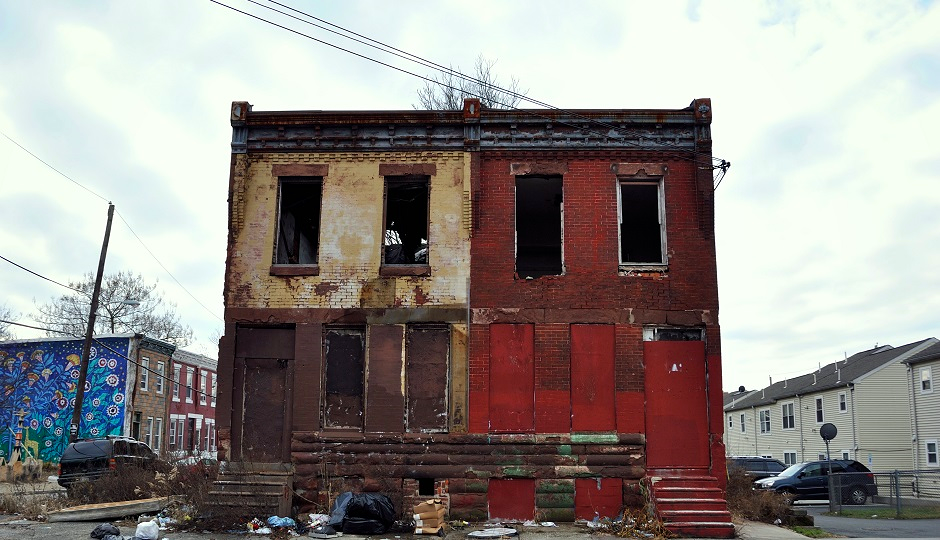The Land Bank — a Supposed Big Fix for Delinquency and Blight — Is Sputtering

Photo credit: Julia Rowe via Flickr.
Two years ago this December, City Council created a Land Bank. It was a big deal. Or so it seemed at the time.
In theory, the Land Bank was a (partial) solution to a couple of huge, maddening, longstanding problems.
Huge Problem Number 1? Property tax delinquency. There’s no short-term silver bullet for a civic challenge this immense, but a Land Bank was supposed to help. The new entity has the power to seize tax delinquent properties without exposing those properties to a problematic (and slow) sheriff sale process.
Huge Problem Number 2? The inexplicable, self-defeating ownership structure the city now has in place for about 9,500 vacant lots and abandoned buildings across the city. Each of those parcels is publicly held, but they’re split between an array of agencies, which have land-sale policies that are both opaque and not at all consistent. All of which makes it much, much harder than it should be for those developers, non-profits and average Philadelphians that want to put city-owned vacant land back into productive use to actually do so.
The new Land Bank was supposed to help on both fronts. So far, it’s accomplished next to nothing on both.
Really. Almost two years after its formation, the Land Bank has title to virtually none of those huge holdings already in the city’s possession, and it’s not used its tax delinquent acquisition powers once. What gives?
Jared Brey, writing for Newsworks and PlanPhilly, offers some insight:
John Carpenter, the deputy director of the new agency, said everyone expected it would take a while to get rolling.
“We knew there were a lot of things we needed to do before we could get the land bank up and running,” Carpenter said. “The biggest, first one was just getting the strategic plan underway. That was almost a year’s worth of work.” …
But the biggest obstacle so far is labor negotiations. The land bank is going to be staffed by four separate city agencies with four different unions. One of those unions, representing the Philadelphia Housing Development Corporation, is holding out for a better contract. The city won’t say what the sticking points are.
This is a depressing situation, on a couple of levels.
First, there’s the labor issue. Three of four unions involved have reached a deal with the city. And yet the Land Bank — an entity with the potential to have a huge impact on redevelopment for years to come — remains effectively DOA because of the intransigence of a single bargaining unit representing an absurdly small number of workers (there are 58 budgeted employees in the department, and not all of them are unionized). Why, you might ask, are there four bargaining units involved when what’s being discussed is the consolidation of, at most, two municipal functions (land ownership and housing development)? That’s a great question — and a very old one.
Second, there’s the potentially even more nettlesome question of whether or not City Council will authorize the transfer of land into the Land Bank. Why do they have a say in this? Because the City Charter requires Council’s approval whenever publicly-owned land is transferred, even if it’s to another public agency. Layered on top of that legal requirement is the rich, rigid tradition of councilmanic prerogative, wherein Council members as a whole defer absolutely to the whims of whichever District Council Member represents the section of the city where the land is owned.
In other words, if West Philadelphia’s Jannie Blackwell decides she doesn’t want the Land Bank to get publicly-owned properties, the Land Bank isn’t going to get those West Philly parcels — not unless prerogative is broken. And there’s no sign of that happening any time soon.
Really, though, it’s too soon to say if Council is going to be an obstacle to the Land Bank or not. District Council members haven’t been put on the spot yet, and they’re not going to move a muscle unless and until that happens — and that requires the Land Bank to get through the labor impasse.
Meanwhile, Mayor Nutter’s lame-duckitude grows ever more extreme. At this point, it’s difficult to imagine a scenario where the Land Bank becomes functional in any meaningful sense before Nutter leaves office. And after that? Well, it’s months of on-the-job learning for the new mayor and his (or her!) administration, priority setting and so on. Even if the next mayor makes the Land Bank a real priority, it’s easy to see another year (or more) elapsing before the entity becomes a meaningful force.
And in the meantime? More of the same.